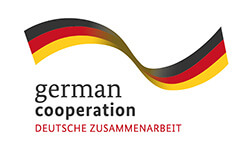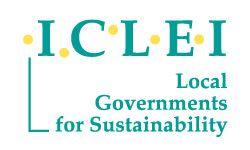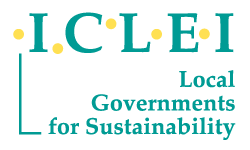Cities are faced with rapid urbanization, shifting economic and demographic trends, the impacts of climate change, overuse of resources and a number of pressing development challenges.
Now, with the adoption of global sustainability frameworks, from the Sustainable Development Goals to the Paris Agreement and New Urban Agenda, they are a core part of a growing global movement towards sustainability.
This visual story shows the challenges cities face and the proactive steps ICLEI Members are taking. It is also a reminder that they can and should not act alone. Coordinated action among all levels of government and a diversity of sectors - including businesses, financiers and academia - is vital for a sustainable future.
It was compiled in 2016 with the valuable interview contributions from ICLEI Members.
To navigate, click on the buttons to the right hand side or use the down arrow on your keyboard.


Eckart Würzner, Mayor of Heidelberg, Germany
Lan Marie Nguyen Berg, Vice Mayor of Environment and Transport, Oslo, Norway
carbon-neutral capital in 10 years’ time.”
Morten Kabell, Mayor for Technical and Environmental Affairs, Copenhagen, Denmark
Elisa Campbell, Director of Regional Planning, Metro Vancouver, Canada
Sean O’Donoghue, Manager, Climate Protection Branch, eThekwini Municipality, South Africa
Jorge Perez Jaramillo, Architect and former Director of Planning, Medellín, Colombia
Population: 174,000
Through the Multi-AdaPT project, hundreds of families in Almada will produce over 300 tons of fresh vegetables each year. These community gardens are surrounded by recreational areas, restored steams and stormwater retention basins that enhance social interaction, biodiversity and flood management in the city.
ICLEI Member since 1999
Population: 1.4 million
Belo Horizonte produces 43,800 megawatt-hours of energy every year from its organic waste. By transforming a major landfill into a waste-to-energy facility, the city avoids 80,000 tons of greenhouse gas emissions each year. That amounts to nearly 17,000 cars taken off the road for one year.
ICLEI Member since 1993
Population: 2.4 million
Nagpur saves 9.7 kilowatt-hours of energy and over $275,000 every year as a result of transformations in its water supply system.
ICLEI Member since 2006
Population: 10 million
Sharing City Seoul makes the most of existing resources through a sharing economy. Residents can rent tools and camping gear from community centers and host events in unused areas of city hall. The city provides public parking to car sharing businesses and connects secondhand shops with daycare centers so they can exchange clothes for children.
ICLEI Member since 1999
Population: 6,700
Aspen is powered by 100 percent renewable energy. Their energy mix includes 46 percent hydro, 53 percent wind and 1 percent landfill gas.
ICLEI Member since 1997
Population: 645,000
Thanks to the Sorocaba bike sharing program, residents take 10,000 bike trips each month on over 100 kilometers of bike paths throughout the city.
ICLEI Member since 2011
Population: 8.9 million
Each month, over 2,000 residents of Mexico City visit Mercado del Trueque, a market where they exchange recyclable waste for vouchers they use to buy fresh produce from local farmers.
ICLEI Member since 1992
Population: 2.4 million
Informal waste collectors are at the heart of Medellín’s solid waste management strategy. Collectors helped set the prices for public cleaning services, which means 3,200 collectors now receive fairer payment for materials they recover. Their work supports the city in achieving its solid waste recovery target: 30 percent by 2019.
ICLEI Member since 2013
Don Iveson, Mayor of Edmonton, Canada
Antoine Faye, Chief Resilience Officer, Dakar, Senegal
Sipliant Takougang, National Coordinator, Urban Governance Programme, Ministry of Urban Development and Habitat, Yaounde, Cameroon
Frank Cownie, Mayor of Des Moines, USA
City-level action is essential in these efforts, and they must be empowered to carry out their vision.
Sources & Credits
Weekly urbanization rate: International Organization for Migration. (2015).
World Migration Report 2015.
Geneva, Switzerland: International Organization for Migration.
Slum figure: UN Habitat. (2012). “Housing & slum upgrades”.
Retrieved from http://unhabitat.org/urban-themes/housing-slum-upgrading/
Air pollution: World Health Organization. (2014). “7 million premature deaths annually linked to air pollution.”
http://www.who.int/mediacentre/news/releases/2014/air-pollution/en/
Natural disasters: Internal Displacement Monitoring Center. (2013.) “Global figures.”
http://www.internal-displacement.org/global-figures/#natural
Solid waste: Bhada-Tata, Perinaz, & Hoornweg, Daniel A. (2012).
What a waste? : a global review of solid waste management. Washington, DC: World Bank Group.
Medellin: © Valle de Aburra
Sorocaba bike video: © Integrabike GPE / SECOM – Municipality of Sorocaba
